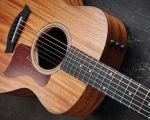Best Saxophone Mouthpieces for Beginners: Finding Your Perfect Fit
1. My Journey to Finding the Right Saxophone Mouthpiece
When I first started playing the saxophone, I was excited but overwhelmed by all the choices available. The mouthpiece was one of the first pieces of equipment I needed to consider, and I had no idea where to start. Like most beginners, I assumed that all mouthpieces were essentially the same, but I quickly learned that choosing the right mouthpiece can make a huge difference in my sound and comfort while playing.
As a beginner, I found that the mouthpiece played a pivotal role in my playing experience. I was looking for something that would help me produce a good sound while also being comfortable and easy to control. After experimenting with a few options, I discovered that the best mouthpieces for beginners have certain features that make the learning process much smoother. In this article, I'll share my experience with selecting a mouthpiece and provide helpful tips for beginners on choosing the right one.
2. What Makes a Good Mouthpiece for Beginners?
The saxophone mouthpiece is a crucial component of the instrument, as it directly impacts the tone, ease of playing, and overall experience. As a beginner, you want a mouthpiece that allows you to focus on learning and building technique rather than struggling with the equipment. But what exactly should you look for in a beginner mouthpiece?
After trying various mouthpieces, I learned that the best ones for beginners have certain characteristics that make them easier to play. These features include:
- Material: Most beginner mouthpieces are made of hard rubber or plastic. Rubber is preferred for its warmth and rich tone, but plastic can also be durable and less expensive.
- Facing Length: The facing length refers to how long the part of the mouthpiece that comes into contact with the reed is. Shorter facings are generally easier to control for beginners, making them ideal for developing technique.
- Tip Opening: The tip opening is the distance between the tip of the mouthpiece and the reed. A smaller tip opening is typically easier to play for beginners, as it requires less air and is more forgiving when producing sound.
- Durability and Quality: While beginners may not need to invest in a high-end mouthpiece right away, it’s important to choose one that’s durable enough to last through the learning stages and withstand regular use.
In my experience, mouthpieces with a medium tip opening and a comfortable facing length were ideal for me as a beginner. They allowed me to control the tone better while still being forgiving if I made mistakes in my embouchure or airflow.
3. Top Mouthpieces for Beginners: My Recommended Picks
1. Yamaha 4C Alto Saxophone Mouthpiece
The Yamaha 4C is a popular choice for beginners due to its balanced sound and ease of use. When I first tried it, I was impressed by how quickly I could produce a good tone without too much effort. The 4C features a medium tip opening and a relatively short facing length, which made it easier for me to control the sound and focus on my technique.
Why it's great for beginners: The Yamaha 4C is very forgiving and offers a warm, rich tone without requiring a lot of air pressure. It’s also durable and affordable, making it a fantastic choice for those just starting out.
2. Vandoren V5 Series Mouthpiece
The Vandoren V5 Series mouthpieces are known for their versatility and consistent quality. I found that this mouthpiece was particularly easy to use for various playing styles, from classical to jazz. The V5’s tip opening is slightly larger than the Yamaha 4C, but it still offers a very controlled and balanced sound for beginners.
Why it's great for beginners: This mouthpiece is designed to be easy to play while still offering a professional-level sound. It’s especially ideal for beginners who are looking to experiment with different styles of music.
3. JodyJazz HR* Alto Sax Mouthpiece
The JodyJazz HR* mouthpiece is a high-quality choice that struck a good balance between affordability and performance. As a beginner, I appreciated how responsive this mouthpiece was. It’s made from high-quality rubber, and it produces a warm, rich tone that’s perfect for a variety of genres. Though it’s priced higher than some other beginner mouthpieces, I found it to be well worth the investment.
Why it's great for beginners: The HR* offers excellent tone quality and ease of playability, making it suitable for beginners who want to invest in a mouthpiece that will grow with them as they improve.
4. Selmer C* Mouthpiece
Selmer is a trusted name in the saxophone world, and their C* mouthpiece is a great option for beginners. With a medium tip opening, it offers a nice balance between ease of playing and sound quality. I found it to be particularly great for developing control and producing a rich sound without too much effort.
Why it's great for beginners: The Selmer C* is a reliable, high-quality mouthpiece that will help beginners improve their tone and technique. It’s a great choice for those who want a mouthpiece that can grow with them as their skills develop.
4. How to Choose the Best Saxophone Mouthpiece for Your Needs
When choosing a mouthpiece, it’s important to consider your personal preferences, playing style, and the type of sound you want to achieve. Here are some tips that helped me when choosing a mouthpiece:
- Test Different Mouthpieces: Don’t be afraid to try out a few different mouthpieces to see what feels most comfortable for you. Many music stores offer mouthpiece trials, so take advantage of that opportunity to experiment with different options.
- Consider Your Musical Style: Different mouthpieces are better suited to different genres. If you’re primarily playing classical music, a mouthpiece with a smaller tip opening may be ideal. For jazz or pop, you might prefer a larger tip opening to achieve a more dynamic sound.
- Seek Professional Advice: If you’re unsure about which mouthpiece is right for you, seek advice from a teacher or experienced saxophonist. They can help guide you based on your playing style and goals.
By considering these factors, I was able to choose a mouthpiece that matched my style and made my learning process more enjoyable.








